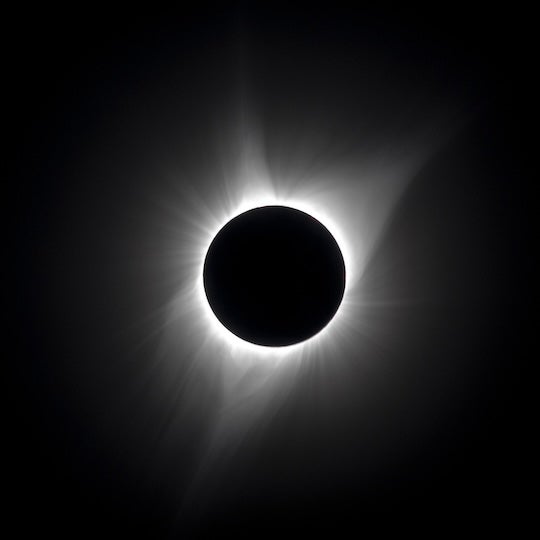Nationally recognized solar eclipse and solar power experts from Rice University are available to discuss the April 8 eclipse, which will be the last total solar eclipse in the contiguous U.S. for 20 years.
The path of totality will cross 15 states from Texas to Maine, including slivers of Tennessee and Michigan. The solar eclipse will begin in totality around 1:31 p.m. Central Standard Time and last 4 minutes and 26 seconds . Texas is considered an optimal viewing location because of its typically sunny weather and location in the path of totality where the sun will be totally eclipsed by the moon. Some cities with long durations of totality include Eagle Pass, Uvalde, Kerrville, Fredericksburg, Llano, Lampasas, Killeen, Waco, Sulphur Springs, and the southeastern suburbs of Dallas.
Patricia Reiff, professor of physics and astronomy and the associate director of outreach programs for the Rice Space Institute, is a nationally recognized expert on eclipses and has personally viewed 20 eclipses around the world. She has conducted numerous public talks, educational outreach and local and national media interviews discussing a wide variety of related topics, including how to view eclipses safely, how annular eclipses differ from total eclipses, the rarity of different types of eclipses, optimal viewing locations and more.
Reiff is also a regional coordinator for the Citizen Continental-America Telescope Eclipse 2024, a network of volunteer teams equipped and trained to capture videos of the sun’s corona — or atmosphere — during the April 8 total solar eclipse. Reiff oversees approximately a dozen sites in Texas, Arkansas and Oklahoma.
Patrick Hartigan, professor of physics and astronomy, is another nationally recognized expert on eclipses. He has also done numerous public talks, educational outreach and local and national media interviews discussing an array of relevant topics, including safe viewing practices and prime viewing locations for eclipses, explaining different types of eclipses and the rarity of each one and more.
Stephen Bradshaw, professor of physics and astronomy, can discuss different types of eclipses, their historical and contemporary importance and all aspects of solar coronal science.
Daniel Cohan, associate professor of civil and environmental engineering, can discuss what happens to solar-powered devices during an eclipse. According to a recent story from KHOU 11, Texas solar farms in the path of the April 8 eclipse will see a substantial drop in production. Cohan said these impacts on the solar farms are expected between 12:10-3:10 p.m., according to the Electric Reliability Council of Texas (ERCOT).
Media interested in speaking with any of the experts should contact Amy McCaig, senior media relations specialist at Rice, at 713-348-6777 or amym@rice.edu. The experts listed above will not be available for interviews after April 4 due to eclipse-related travel.
A video from a leading Rice University solar eclipse expert with tips on how to view eclipses safely is available here: https://youtu.be/NXyUEXIFruE.

